Роберт Бюттнер - Orphan's Journey
Здесь есть возможность читать онлайн «Роберт Бюттнер - Orphan's Journey» весь текст электронной книги совершенно бесплатно (целиком полную версию без сокращений). В некоторых случаях можно слушать аудио, скачать через торрент в формате fb2 и присутствует краткое содержание. Жанр: Боевая фантастика, на английском языке. Описание произведения, (предисловие) а так же отзывы посетителей доступны на портале библиотеки ЛибКат.
- Название:Orphan's Journey
- Автор:
- Жанр:
- Год:неизвестен
- ISBN:нет данных
- Рейтинг книги:3 / 5. Голосов: 1
-
Избранное:Добавить в избранное
- Отзывы:
-
Ваша оценка:
- 60
- 1
- 2
- 3
- 4
- 5
Orphan's Journey: краткое содержание, описание и аннотация
Предлагаем к чтению аннотацию, описание, краткое содержание или предисловие (зависит от того, что написал сам автор книги «Orphan's Journey»). Если вы не нашли необходимую информацию о книге — напишите в комментариях, мы постараемся отыскать её.
Orphan's Journey — читать онлайн бесплатно полную книгу (весь текст) целиком
Ниже представлен текст книги, разбитый по страницам. Система сохранения места последней прочитанной страницы, позволяет с удобством читать онлайн бесплатно книгу «Orphan's Journey», без необходимости каждый раз заново искать на чём Вы остановились. Поставьте закладку, и сможете в любой момент перейти на страницу, на которой закончили чтение.
Интервал:
Закладка:
The valley to our front was miles wide, and as flat and suitable to pass an army as the three hundred miles of ground our army had crossed so far. One hundred miles up that valley lay the Troll fortress that we could win the war by destroying.
But smoke grayed the valley floor, and where the wind tore away the smoke, the ground was ash-black. The stink of embers blew back across us.
I punched up Jeeb’s overhead. For twenty miles up the valley, not a grass blade remained unscorched, and the Slugs had deployed units that could torch the rest of the valley in increments, if we advanced.
Gustus handed Ord back his binoculars, and replaced his spectacles. “There’s no forage for the animals anymore. We’ll have to forage in the rear, then bring fodder forward in the wagons. That’ll siphon off our transport capacity. We’ll barely be able to provision and arm the troops.” Gustus turned to Casus, and shook his head. “Now, we can’t support advances of longer than eight miles each week.”
Ord said, “And that’s if the Slugs leave us alone, which they won’t.”
Casus snorted. “I could crawl that far!”
I ground my teeth.
The little maggots had outwitted us again. They had done it on Earth, twice, on Ganymede, and, here on Bren, at the Fair.
The Slugs had slowed our advance up the valley by destroying our animals’ forage.
Now, by the time we advanced within range for our artillery to stand off, and blow the Troll to hell, the Slug incubator would have cranked out a fresh new army of Warriors, almost twice the number of the troops we had left, to add to their existing force. If we did nothing but slog slowly up the valley, we would lose the campaign, the war, and the world. We had to be shelling the Troll within a few weeks.
I mag’d up on the distant mountains. They were fault block mountains, a series of high, gray cliffs that rose and faced us, then dropped away in shallow slopes down the far side, to the base of the next cliff. Crossing them would be like riding a thirty-mile long roller coaster, with each upslope a vertical half-mile high. Most of our army couldn’t make it over those mountains.
I asked Bassin, “If Casus pinned the Slugs by advancing up the valley, could your Sappers advance the guns across the mountains in a couple weeks?”
Bassin peered one-eyed through his spyglass at the first cliff wall, then he grinned at me. “We move sailing ships up a half-mile high waterfall in the wilderness every day.”
I turned to Casus, and put a hand on his shoulder armor. “The main advance up the valley will be your show from here out. My HQ will now move with Bassin.”
Casus grinned. “When you get those guns up on the heights, look before you fire. We may reach the blue mountain before you.”
“I’d like that,” I said.
That night we caught another weather break. In a dark, cold, obscuring drizzle, half the Tassini Scouts slipped away from their positions across the miles of width and depth of our army. Bassin’s Sappers hitched the Scouts’ wobbleheads to equipment wagons, and to the limbers of wheeled Ordnance Rifles, and they and the Scouts moved out on foot.
We reached the scree slope at the base of the first mountain cliff in rain and darkness, and the Sappers disassembled Ordnance Rifle barrels from carriages and wheels, so each could be drawn up the cliffs with blocks and tackle.
In the meantime, Scouts scrambled up the cliff face in the oily rain like spiders, coils of guide rope wound around their torsos. As the Scouts reached ledges, they dropped guide ropes that the Sappers attached to the blocks and tackle, which were wrapped in tent cloth to muffle them from clattering against the rock face. The Marini Sappers and Tassini Scouts coordinated their movements with silent hand signals, scarcely visible in the dark, rather than risk the sound of a shout.
The Scouts made the pulley assemblies fast, then pressed silently upward to the next level of ledges.
Through my night snoops, I watched one kid who had made it up three ledges reach out to grasp a rope that flapped in the wind. Whether rock crumbled, or he slipped in the rain, only he and his God know. But in an instant he was gone, a rag doll tumbling through the green glow of my night vision field. In all the last three hundred feet he lived, he never uttered a sound.
The Marini Sappers gathered around his body as it lay in the scree at the base of the cliff, and wept in the rain for him. There could be no funeral fire, so they buried him in the loose rock, Marini-style.
One Marini lifted a stone, and whispered to his buddy, “Can we give rites to a Tassini?”
His friend said, “Tassini? He’s one of us, now.”
At dawn, Casus pressed forward, and drove the Slugs back, so they wouldn’t notice a few distant flies dangling eight hundred feet up a distant wall.
I leaned over Bassin’s shoulder, as he sat on a rock in the rain and clicked the beads of his zill.
“What’s the math for?” I asked.
Bassin rubbed his forehead. “Each gun barrel’s the heaviest single load. The ropes were strong enough, but the rain’s weakened them. The weight is close, now. But everything should hold.”
Bassin’s Sappers had rigged a rope sling around an Ordnance Rifle’s tube as carefully as if they were swaddling baby Jesus, though they had no idea who that was.
Bassin shot them a thumbs-up. A Sapper grasped the reins of a wobblehead harnessed to the pulley assembly and marched the beast away.
Foot by creaking foot, the first gun tube ascended.
Forty minutes later, the gun tube dangled seven hundred feet above us, nearly at the first way point of Bassin’s vertical railroad.
The rain stopped.
A dozen feet above the gun, something small and black thrust out of the cliff face, like a dagger through a curtain. I zoomed on it and saw teeth.
The pterosaur peeked out of its nesting cavelet, looked down at the intruder creeping up toward it, and pounced.
I said, “Crap!”
The reptile spread its forty-foot, dirty-gold wings, as it dug its claws into the rope sling, and pecked at the iron burglar.
The upper pulley groaned, as the squawking pterosaur and the gun tube swung like a pendulum, and the gun tube clanged the rock wall.
Even a pterosaur as wide as a small house is as fragile as a kite, and barely outweighs a man. But the weakened ropes popped, first one, then all, and the reptile and the cannon plummeted seven hundred feet.
The gun tube hit the scree muzzle-first, crushed the pterosaur’s wing like rice paper, and bounced down the slope, fifty feet to my right. Straight for Bassin. He stood frozen with his back to me, waiting a heartbeat to learn the batoning gun tube’s trajectory.
I screamed, “Bassin!”
He leapt. Almost fast enough. Bassin dodged his torso around the gun, but the barrel crushed his leg, and Bassin, the gun, and the screeching, flapping pterosaur slid in a rotating heap down the loose rock of the scree slope.
Sappers and I ran to Bassin, and the first man to reach the heap of them put the broken reptile down with his Sapper’s axe.
Bassin lay on his back.
I knelt and touched his face. “Bassin?”
He smiled, and sat up. “That was close!”
My jaw dropped.
Bassin reached forward, cut away his uniform trouser leg with his Sapper’s axe, and unfastened his prosthetic leg. He left the ruined appliance crushed beneath the cannon tube.
Bassin said, “A rare advantage of the amputee!”
The fall bent the gun tube out of plumb enough to render it scrap.
Bassin strapped on a spare prosthetic, looked up at the cliff, and said, “I figured 5 percent accident breakage. I just didn’t figure it all at once. We’ll have to be careful the rest of the way.”
Читать дальшеИнтервал:
Закладка:
Похожие книги на «Orphan's Journey»
Представляем Вашему вниманию похожие книги на «Orphan's Journey» списком для выбора. Мы отобрали схожую по названию и смыслу литературу в надежде предоставить читателям больше вариантов отыскать новые, интересные, ещё непрочитанные произведения.
Обсуждение, отзывы о книге «Orphan's Journey» и просто собственные мнения читателей. Оставьте ваши комментарии, напишите, что Вы думаете о произведении, его смысле или главных героях. Укажите что конкретно понравилось, а что нет, и почему Вы так считаете.

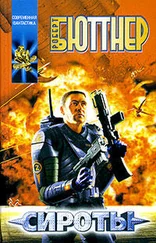

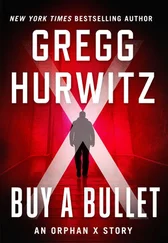
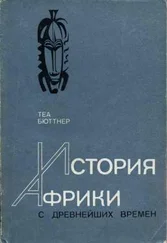

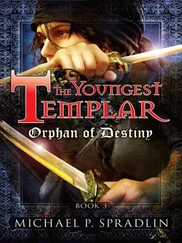
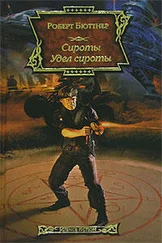
![Дэн Бюттнер - Где живет счастье [Правила жизни самых счастливых людей планеты] [litres]](/books/395574/den-byuttner-gde-zhivet-schaste-pravila-zhizni-samyh-thumb.webp)


